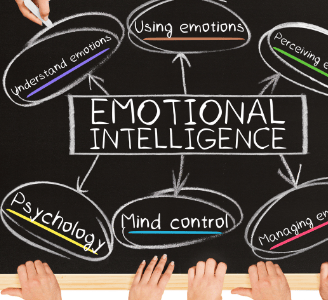Developing Emotional Intelligence: A Guide to Building Stronger Relationships and Achieving Success
Want to improve your communication skills, build stronger relationships, and achieve your goals? Develop your emotional intelligence today.
MENTAL HEALTH & WELLNESS
10/8/20242 min read


Emotional intelligence, often abbreviated as EQ, is a critical skill that goes beyond traditional IQ. It encompasses the ability to understand and manage our own emotions, as well as the emotions of others. Developing emotional intelligence can significantly impact our relationships, careers, and overall well-being
The Importance of Emotional Intelligence
Emotional intelligence is essential for:
Stronger Relationships: People with high EQ tend to have better relationships with friends, family, and colleagues. They are more empathetic, understanding, and compassionate.
Enhanced Leadership: Effective leaders possess a high degree of emotional intelligence. They can inspire and motivate their teams, manage conflict, and make sound decisions.
Improved Decision-Making: Emotional intelligence helps us to make rational and informed decisions by considering both our emotions and the emotions of others.
Better Stress Management: Understanding and managing our emotions can help us cope with stress more effectively and maintain a healthy work-life balance.
Increased Resilience: Emotional intelligence can help us bounce back from setbacks and challenges, building resilience and perseverance.
Strategies for Improving Emotional Intelligence
Self-Awareness:
Pay attention to your emotions: Notice how you feel in different situations and identify the emotions you're experiencing.
Practice mindfulness: Mindfulness meditation can help you become more aware of your thoughts and feelings.
Keep a journal: Write about your emotions, thoughts, and experiences to gain a better understanding of yourself.
Empathy:
Active listening: Pay attention to what others are saying and try to understand their perspective.
Put yourself in their shoes: Imagine how you would feel in their situation.
Validate their feelings: Acknowledge and respect their emotions, even if you don't agree with them.
Relationship Management:
Effective communication: Practice clear and assertive communication to express your thoughts and feelings.
Conflict resolution: Learn healthy conflict resolution strategies to address disagreements peacefully.
Build strong relationships: Nurture your relationships with friends, family, and colleagues through open communication and empathy.
Self-Regulation:
Manage your emotions: Learn to control your emotions and avoid impulsive reactions.
Delay gratification: Practice patience and self-control.
Develop stress management techniques: Practice relaxation techniques like deep breathing, meditation, or yoga.
Motivation:
Set goals: Establish clear and achievable goals to stay motivated.
Find your passion: Pursue activities that you enjoy and find meaningful.
Overcome challenges: Develop resilience and perseverance to overcome obstacles.
By developing your emotional intelligence, you can improve your relationships, enhance your career, and lead a more fulfilling life. It's a valuable skill that can benefit you in countless ways.
